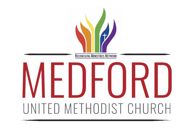
1I cry out to you from the depths, Lord—
2my Lord, listen to my voice!
Let your ears pay close attention to my request for mercy!
3 If you kept track of sins, Lord—
my Lord, who would stand a chance?
4 But forgiveness is with you—
that’s why you are honored.
5 I hope, Lord.
My whole being[a] hopes,
and I wait for God’s promise.
6 My whole being waits for my Lord—
more than the night watch waits for morning;
yes, more than the night watch waits for morning!
Reflection
A simple break down of this scripture comes from the MacArthur Study Bible and it goes like this:
130:1 Out of the depths – a figurative expression of severe distress.
130:3-4 The psalmist expresses his belief in the never-ending forgiveness of God.
130:5 In His word I do hope – The psalmist expresses a certain hope since God’s Word cannot fail.
130:6 Watch for the morning – Reasonably, at that time and place, a reference to shepherds with a night watch that ends with the sun’s rising.
One might say this is a description of grief and celebration at the same time.
I hope that in your life there are people whom you have confidence in and feel you can rely on in terms of what they say, believe and write. Ginger Rothhaas is one of those people for me and when her book “Being Human, 150 Practices to Make it Easier” came out late last year, I bought a copy. One Practice is called “Decide With Love or Fear.” The excerpt below seems like a unique way to look at what we are learning and experiencing in this time of Lent at MUMC.
“When I was in seminary, I was losing my faith in year two. That is part of the seminary experience: you learn a lot, question everything you’ve been taught, and then re-build your theology. As I was in the process of developing my own, I kept seeing the book “A Course in Miracles” referenced in various places. After a few times, I felt like it was a message from above and I should investigate further. I found it a dense, yet insightful, book of spiritual insights written in Christian language with daily practices to apply. What struck me first in the book was the idea that everything we do comes from a place of love or fear.
I wrestled with that idea and began investigating my thoughts, actions, and behaviors through that lens. I realized that a lot of what I was doing was coming from a place of fear. Fear of failure, of not being liked, of not being smart, of inadequacies or insecurities, of being wrong, of being egotistical… lots and lots of fears.
So, I started a little experiment of pausing before I said or did something and shifting my mindset from fear to love. What would I say from a place of love instead of fear? What would I do if I acted from love rather than fear that someone wouldn’t like me? What would it look like to fill my brain with loving thoughts instead of fearful ones? It was a miraculous shift. I could feel a change in my cells. Fear was lifting.
I realized if an action comes from a place of love, it can’t be wrong. So, I didn’t need to live in fear anymore. If everything I said and did came from a place of love, then I would never get it wrong. And getting it wrong in any context was one of my biggest fears.
Asking yourself, “is what I’m about to do coming from a place of love or fear?” can be transformational.”
by Clarence Beverage
For Pondering & Prayer
Experiencing hope and joy alongside each other isn’t necessarily what we think of, is it? Ginger’s technique of consciously thinking about why you say or do something is much the same. Considering what drives you is inherently a mix of positive and negative.
What do you think most strongly motivates you?
Prayer: Holy Lord, we ask that you bless the work that we will do in your name and give us both stamina and will, through the power of your Spirit, to be discerning and loving Amen
